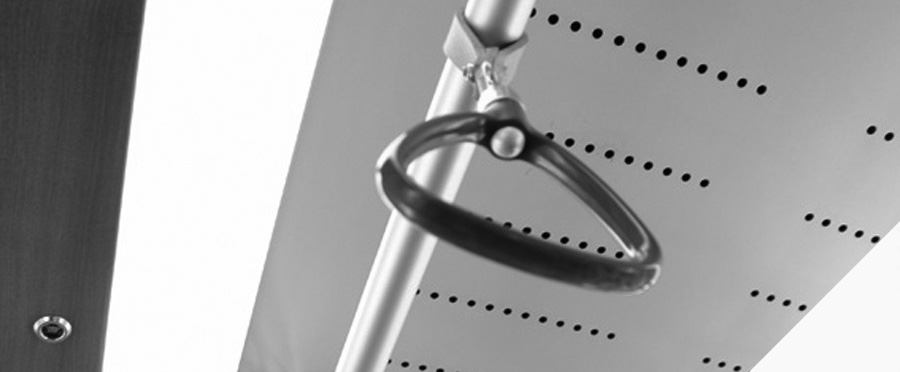
CONCEPT
The aims of this research project are:
(a) an approach to a cultural theory of forms of action and interaction in non-verbal, functional auditory signs in mediatized worlds
(b) research and interpretation of the sources e.g. in the Archiv für Semiotik and in other archives on the signifying quality of sounds
(c) a sketch of different individual praxis theories in designing functional auditory signs
(d) a synthetic model theory to describe systematic processes in designing functional auditory signs
(e) publication of the research results in a weblog, in symposiums open to the public and a final publicaton in the Sound Studies bookseries and a special issue in the german Zeitschrift für Semiotik
(f) to build up an independent research group on acoustic communication: the Sound Studies Lab
The study in cultural theory of mediatized auditory signs lays the theoretical foundations for the study in design theory on the one hand – and on the other hand it evaluates and systematizes the results of the study in design theory. Methods of Semiotics here are combined with methods of Mediology; an innovation in methodology that tests the epistemological qualities and benefits of Mediology.
The study in the design theory of mediatized auditory signs sketches individual praxis theories of a representative group of sound designing directors and users with an ambition in designing and directing their direct mediatized auditory environment (cf. Toffler 1980: Producer/Consumer, ProSumer): individual heuristics of designing. Field research in 6 of those auditory design processes makes individual praxis theories accessible to research for a study in the cultural theory of mediatized auditory signs.
The final individual design praxis theories get to be combined with the sketch of a cultural theory of non-verbal, functional auditory signs in mediatized worlds; out of this a synthetic model to describe systematic processes in designing functional auditory signs gets to be developed in its basic traits.
Funding
German Research Foundation DFG (2012-2014)
Humboldt-Universität zu Berlin (2012-2014)
Cooperations
Archiv für Semiotik, Universität der Künste Berlin
Center of Excellence Cognitive Interaction Technology, Universität Bielefeld
Design Research Lab
Deutsches Forschungszentrum für Künstliche Intelligenz
Deutschlandradio Kultur Berlin
Digital Games Research Center, Universität Potsdam
Institut für Kulturwissenschaft, Humboldt-Universität zu Berlin
Internationales Design Zentrum Berlin
Presentation
Publications
Schulze, Holger (2010): A sala audível. Introdução a uma Antropologia Histórica do Som na Arquitetura, in: Leonardo Vincenzo Boccia & Natalia Coimbra de Sá (Eds.), Pulsações Audiovisivas. ECUS – Cadernos de Pesquisa, Vol. 2. Universidade Federal da Bahia Salvador/Brasil, S. 122-130
Schulze, Holger (2010): The Clock of the Long Now. Für eine Gestaltungstheorie der Langlebigkeit, in: Dieter Korczak (Hg.), Spurensuche. Kulturwissenschaftliche Interpretationen und gesellschaftliche Rezeption − Interdisziplinäre Schriftenreihe, Band XXXII, Asanger Verlag Kröning, S. 227-240.
Schulze, Holger (2009): Wenn Dinge singen. (Vortrag Wissenschaftszentrum Berlin, )
Schulze, Holger (2009): Education in Sound, in: Kai Bronner & Rainer Hirt (Eds.), Audio Branding. Brands, Sound and Communication, Nomos Verlagsgesellschaft Baden-Baden, p. 17-23.
Schulze, Holger (2008): Sonische Mediologie. Eine Vorgehensweise für Klanganthropologie und Klangökologie, in: Birgit Mersmann & Thomas Weber (Hgg.), Mediologie als Methode, AVINUS Verlag Berlin, S. 219-234.
Schneider, Max (2008): ??? Masterthesis Universität der Künste Berlin.
Spehr, Georg (2008, ed.): Funktionale Klänge. Hörbare Daten, klingende Geräte und gestaltete Hörerfahrungen, Bielefeld: transcript Verlag (Sound Studies Reihe, Vol. 2).
Spehr, Georg (2008): Funktionale Klänge. Mehr als ein Ping, in: Schulze, Holger (2008, ed.): Sound Studies. Traditionen – Methoden – Desiderate. Eine Einführung. transcript Verlag








